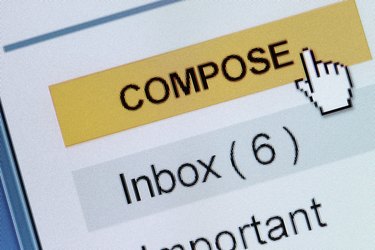
Sending or receiving tables embedded in messages through Gmail can be fraught with problems, especially if the table uses advanced formatting. While Gmail does support basic tables embedded in messages, it can't process HTML, nor can it handle advanced editing within the message. In these cases, you're often better off editing the table in a spreadsheet before embedding it into a message or including it as an email attachment.
Inserting Tables
Video of the Day
In most cases, if you highlight a table in a Word document, Excel worksheet or an HTML file, you should be able to copy and then paste it into a Gmail message. If you get only the text without the table or any other formatting, make sure Gmail isn't set to plain text mode. Click the arrow at the bottom of the message, located to the right of the Trash icon, and deselect the "Plain Text Option."
Video of the Day
Editing Tables
While it is possible to correct typos or modify text within a table inserted in a Gmail message, that's about all you can really do. Gmail doesn't have the ability to insert or delete rows or columns. To make these kinds of edits, paste the table into a blank worksheet using Microsoft Excel or Google Docs. After you get the table looking the way you want it, highlight the table, copy it and then paste it into your Gmail message.
Sending Tables to Gmail Recipients
Unlike email services like Microsoft Outlook, Gmail doesn't support HTML. This means that if you embed a table or any other formatting in an email message using HTML, it won't be visible to Gmail recipients. Instead of using HTML when composing messages, change your email format to "Rich Text," which is located under the Options menu in Outlook.com. A table embedded in a Rich Text formatted email is visible to Gmail recipients, as well as most other Web-based email clients.
Controlling Formatting
Some formatting options, like colored text or lines of different thicknesses, are lost when embedded into a message sent through Gmail. To prevent this from happening, save the table as a file and sending it as an attachment. If you save the table as a Google Docs spreadsheet, you also have the option to save it as a shared file in Google Drive, giving recipients editing or read-only permissions. Another solution is to take a screen shot of the table and embedding the image in the email. To take a screen shot in Windows 8.1, click the window with the table in it, then press "Alt-PrtScn" on the keyboard. An image of the window is saved to the Screenshots folder in your Pictures folder.